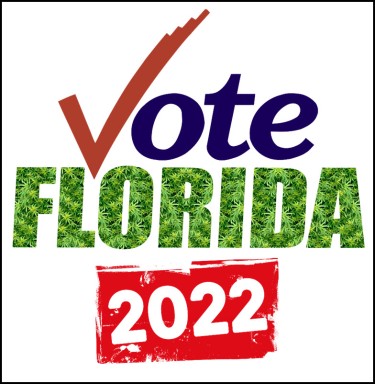
Florida Gov. DeSantis wants cannabis companies to pay more to gamble in Florida and that’s a good thing!
Things aren’t looking good for medical cannabis companies in Florida, as the government is proposing they pay more to operate within the state. This latest notion was released by Republican Gov. Ron DeSantis, who believes the state should charge medical cannabis companies more to operate legally in the Sunshine State. But since DeSantis is a conservative Republican, it could actually be a good thing, contrary to what he might have said about legalization. Squeezing more money out of cannabis companies isn’t a bad thing, contrary to Reefer madness rhetoric like “Shut it up!”, “No marijuana in Florida!”, “Never had free time in this great state!”
DeSantis, an early favorite for the presidential nomination, just wants more money from marijuana companies, which isn’t a bad thing compared to what some conservatives want to see done to the marijuana industry.
It’s pay-to-play, and DeSantis wants more pay for the Florida game. He never said to shut it down or make it illegal.
Based on reports from the Tampa Bay Times, Gov. Ron DeSantis reiterated that medical cannabis companies should pay more to be licensed to operate. In view of the value of the licenses and their high demand, he considers his position to be justified. However, the governor did not specify whether he was referring to cannabis companies already operating in the states. One of them is Trulieve Cannabis Corp., new cannabis companies looking to venture into the Florida cannabis market.
Whatever the case, Ron DeSantis’ plans will be a major topic of discussion among major companies in the state, whether they are wholly Florida-based or those only headquartered in the state. These large companies include Verano Holdings, Fluent, Curaleaf Holdings, Red White & Bloom, and Columbia Care.
Gov. Ron DeSantis’ powerful message hit the media just weeks after MedMen Enterprises Inc., a multi-state cannabis operator, sold its Florida operations to Green Sentry Holdings LLC for $63 million. Similarly, Trulieve also opened a medical dispensary in Kissimmee earlier this month.
Back in 2015, medical cannabis companies in Florida had to pay around $60,000 to legally sell low-THC cannabis products. In addition, companies must renew their operating license every two years. DeSantis believes it will be folly for the state government not to take advantage of the best opportunity to monetize cannabis licensing. Although he believes that legislative change would be required by the legislature to make such effective changes, he believes that an administrative regulation could not achieve such changes.
What Makes Florida’s Medicinal Cannabis Licenses So Valuable?
Sally Kent Peebles, partner at Vicente Sederberg LLP, the national cannabis law firm, provided an in-depth look at why Florida’s medicinal cannabis licenses are the most valuable in the world. According to the Jacksonville-based partner, Florida’s medical cannabis licenses attract such value thanks to the well-defined structure of the state’s medical cannabis industry.
Peebles went on to explain that most states have cheaper royalties because cannabis companies are still constrained to grow even after acquiring a license. But that’s not the case in Florida. In the Sunshine State, a license gives medical cannabis companies unlimited opportunity to expand and open so many facilities in different locations within the states.
According to Peebles, most cannabis companies aren’t generating huge profits, as is commonly believed. This is due to the ghost income tax that many of these cannabis companies have to pay. The ghost income tax cuts the profits of medical cannabis companies significantly, being 85% or more. Therefore, the common notion of cannabis companies raking in millions of dollars while they sit back and watch their business thrive while laughing at everyone else is far from reality.
Should the license fee increase, Peebles strongly believes medical cannabis companies shouldn’t be deterred from doing business in Florida. She believes that’s true, given the many rumors surrounding the legalization of recreational cannabis in Florida. As such, many businesses are hoping that the state will soon legalize recreational cannabis, which will open doors for new and existing businesses in Florida.
New emergency rule
Recently, Florida health officials released the much-anticipated rule setting THC supply limits and dosage amounts for products that physicians and physicians can order for medical cannabis patients. The new law specifically states that for non-smokable cannabis, a total supply limit of 24,500 mg of THC can be dispensed to patients in 70 days. That’s not all; Dosage limits for various forms of cannabis use such as tinctures, inhalation, and edibles will also be established.
The new emergency rule also promotes state law that sets a limit of 2.5 ounces of smokable cannabis products within 35 days. For smokable THC products like whole flower, the limit is based on weight and not THC content. In addition, the new rule creates room for doctors to request a waiver for patients who need more than established limits.
History of Cannabis Legislation in Florida
The Compassionate Medical Cannabis Act was enacted in 2014 and gives patients access to medicinal cannabis. The law states that epilepsy and terminally ill cancer patients can use low-THC cannabis without penalty. Nonetheless, the law provides for a first-degree misdemeanor conviction for doctors who order low-THC cannabis for patients without a valid medical reason, or for people who fraudulently claim to have a terminal illness.
The Office of Compassionate Use and the Compassionate Use Registry was established by the Florida Department of Health to operate, administer, and administer the medical cannabis program, including functioning as an online database for medical treatment provider and patient registrations.
Although cannabis is still illegal at the federal level and is classified as a Schedule I drug under the Controlled Substances Act (CSA), several states such as Florida have legalized cannabis for medical use. In 2017, the Sunshine State also enacted the Medical Use of Marijuana Act, which primarily oversees the state’s public health system and establishes rules that make medicinal cannabis readily available to qualified individuals. About 3% of Florida citizens are registered with the state’s cannabis registry, according to Reuters.
Conclusion
Gov. Ron DeSantis’ plans for the state to increase the tax burden on medical cannabis companies to operate legally in Florida are all aimed at making the most of current opportunities. On the surface level, this could serve as a barrier for newcomers to venturing into the cannabis business. However, Peebles believes the prospect of Florida legalizing recreational cannabis use is more of a motivation for cannabis companies to look past the surge if it does eventually happen.
FLORIDA CANNABIS, READ MORE..

WHAT ARE THE OPPORTUNITIES FOR REC CANNABIS IN FLORIDA IN 2022?

Post a comment: